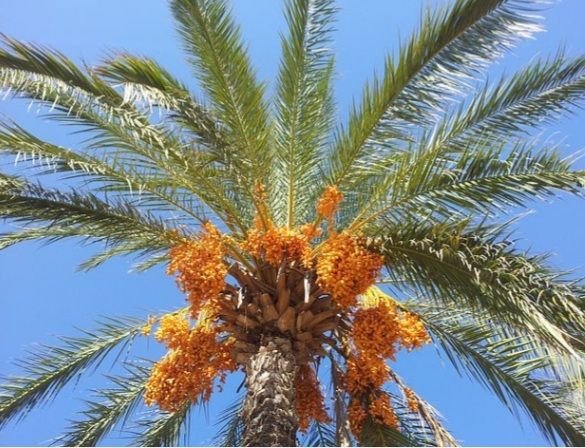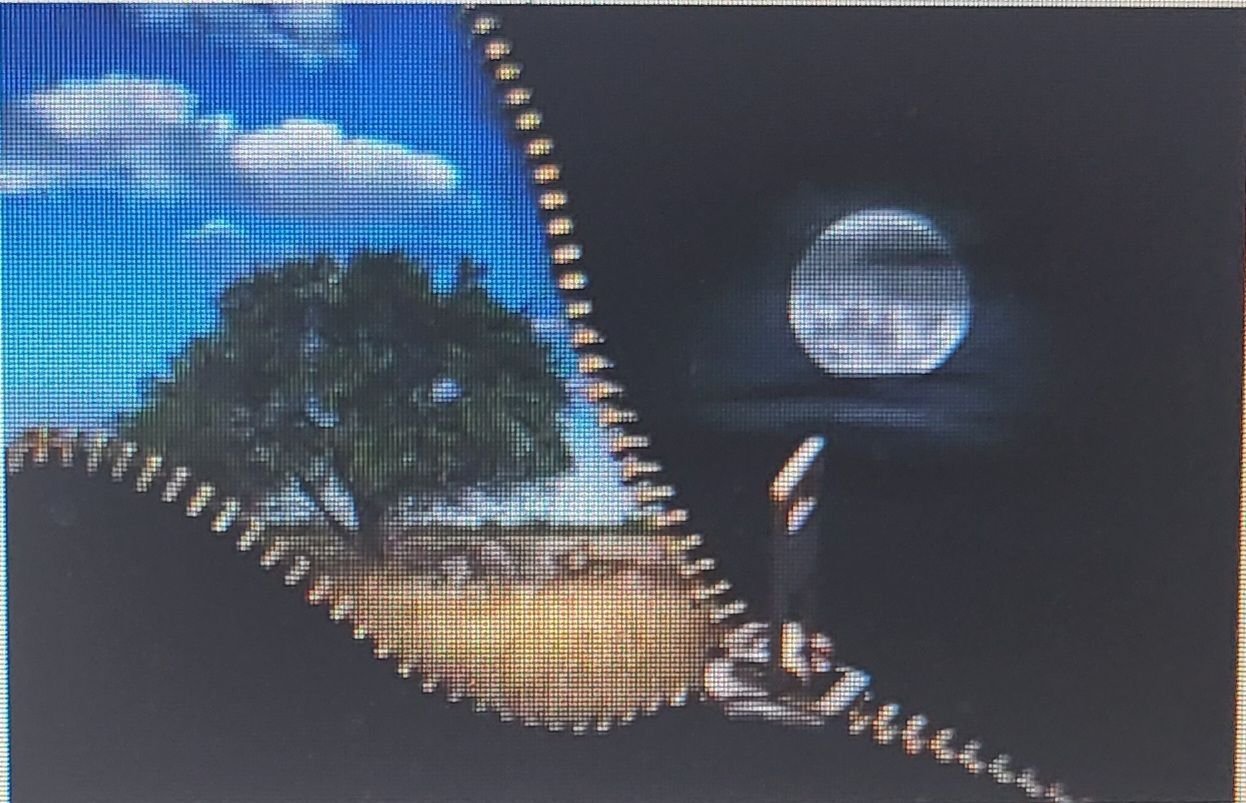In The Name of Allah, The Most Merciful, The Bestower of Mercy.
One of the general fundamental principles (in Islam) is to know that words are two types- words that are mentioned in the Qur’an and Sunnah, and it is obligated to every believer to affirm them- affirm what Allah and His Messenger have affirmed, and negate what Allah and His Messenger have negated. The words affirmed by Allah is truth and the ones Allah negated are (negated) in truth because Allah speaks the truth and guides to the straight path. The words of the divine Islamic legislation are sanctified and it is part of perfection in knowledge that one seeks after the (sound meanings) which the Messenger, peace and blessings of Allah be upon him, intended by them, in order to affirm what he affirmed and negate the meanings he negated, because obligated to us to believe and bear witness to everything he has stated and follow him in everything he has commanded. As for the words that are neither found in the Qur’an and Sunnah nor did the pious predecessors hold a consensus regarding whether they are negated or affirmed, it is not incumbent on anyone to agree with the one who negates or affirms them until its intended meaning is explained. If its intended meaning agrees with the (creed, revelation, commands, prohibitions etc) conveyed by the Messenger, it is affirmed; but if its intended meaning is in opposition, it is rejected. [1]
Al-Allamah Salih al-Fawzan, may Allah have preserve him, said:
Indeed, Allah created (Jinn and humankind) and gave them an innate disposition to recognise Tawhid, obey Him and worship Him alone; but they differed – some of them believed and others disbelieved. Allah said: [هُوَ ٱلَّذِى خَلَقَكُمۡ فَمِنكُمۡ ڪَافِرٌ۬ وَمِنكُم مُّؤۡمِنٌ۬ۚ – He it is Who created you, then some of you are disbelievers and some of you are believers].
Allah wishes belief and well-being for them, but shaytan and the callers to evil wish disbelief and evil for them. Allah [The Exalted] said:
يُرِيدُ ٱللَّهُ لِيُبَيِّنَ لَكُمۡ وَيَہۡدِيَڪُمۡ سُنَنَ ٱلَّذِينَ مِن قَبۡلِڪُمۡ وَيَتُوبَ عَلَيۡكُمۡۗ وَٱللَّهُ عَلِيمٌ حَكِيمٌ۬
وَٱللَّهُ يُرِيدُ أَن يَتُوبَ عَلَيۡڪُمۡ وَيُرِيدُ ٱلَّذِينَ يَتَّبِعُونَ ٱلشَّہَوَٲتِ أَن تَمِيلُواْ مَيۡلاً عَظِيمً۬ا
Allah wishes to make clear (what is lawful and what is unlawful) to you, and to show you the ways of those before you, and accept your repentance, and Allah is All-Knower, All-Wise. Allah wishes to accept your repentance, but those who follow their lusts, wish that you (believers) should deviate tremendously away from the Right Path.
Due to this, Allah sent the Messengers, revealed the Books and established His proofs, thus, there are those amongst humankind who accept the truth and embrace faith by choice, and there are those who reject the truth and embrace disbelief by choice. Indeed, Allah has laid down the differences between the believers and unbelievers in this life and the next, and He forbade that the two groups are made equal. Allah [Glorified be He and free is He from all imperfections] has set out recompense and judgment for each of the two groups in this life and the next. He has given a distinguished name to every group, such as [Mumin – believer], [Kaafir- disbeliver], [Barrun- upright/righteous one], [Faajir – evildoer], [Mushrik- Polytheist], [Muwahhid- Monotheist], [Faasiq- sinner], [Munaafiq- hypocrite], [Mutee’un – an obedient one] and [Aasee- a disobedient one]. And He [Glorified be He and free is He from all imperfections] forbade that equality is made between these differing names and attitudes. Allah said:
[أَمۡ حَسِبَ ٱلَّذِينَ ٱجۡتَرَحُواْ ٱلسَّيِّـَٔاتِ أَن نَّجۡعَلَهُمۡ كَٱلَّذِينَ ءَامَنُواْ وَعَمِلُواْ ٱلصَّـٰلِحَـٰتِ – Or do those who earn evil deeds think that We shall hold them equal with those who believe (in the Oneness of Allah Islamic Monotheism) and do righteous good deeds].
Allah said: [ أَمۡ نَجۡعَلُ ٱلَّذِينَ ءَامَنُواْ وَعَمِلُواْ ٱلصَّـٰلِحَـٰتِ كَٱلۡمُفۡسِدِينَ فِى ٱلۡأَرۡضِ أَمۡ نَجۡعَلُ ٱلۡمُتَّقِينَ كَٱلۡفُجَّارِ – Shall We treat those who believe (in the Oneness of Allaah Islamic Monotheism) and do righteous good deeds, as Mufsidoon (those who associate partners in worship with Allaah and commit crimes) on earth? Or shall We treat the pious ones, as the Fujjaar (criminals, disbelievers, wicked, etc)- Meaning, we have not made them equal because that does not befit Allah’s Justice.
Should we abandon the words (Kufr, Shirk, Kuffaar and Mushrikeen) found in the Qur’an, the Sunnah and the Books of Islamic creed? This will be a violation of the Book and the Sunnah, and an opposition to Allaah and His Messenger. By changing the real meanings of the Shariah terms, we will be from those who distort the Book of their Lord and the Sunnah of their Messenger. Then what defence can be given for (such a crime)? Is it to please the unbelievers?! The unbelievers will never be pleased with us until we abandon our religion. Allah [The Exalted] said:
[وَلَن تَرۡضَىٰ عَنكَ ٱلۡيَہُودُ وَلَا ٱلنَّصَـٰرَىٰ حَتَّىٰ تَتَّبِعَ مِلَّتَہُمۡۗ – Never will the Yahood nor the Nasaaraa be pleased with you [O Muhammad Peace be upon him] till you follow their religion].
Allah said: [ وَدُّواْ لَوۡ تَكۡفُرُونَ كَمَا كَفَرُواْ فَتَكُونُونَ سَوَآءً۬ۖ – They wish that you reject Faith, as they have rejected (Faith), and thus that you all become equal (like one another)].
If the intention of those who call for the substitution of the Shariah terminologies is to show gentleness to the unbelievers and to have good dealings with them, then this cannot be (done) by changing such Shariah terminologies; rather it can only be (done) through what Allah has legislated regarding their affair. This comprises of the following affairs:
To invite them to Islam – the religion Allah has ordained for all of humankind. Allah said:
[ٱدۡعُ إِلَىٰ سَبِيلِ رَبِّكَ بِٱلۡحِكۡمَةِ وَٱلۡمَوۡعِظَةِ ٱلۡحَسَنَةِۖ وَجَـٰدِلۡهُم بِٱلَّتِى هِىَ أَحۡسَنُۚ – Invite (mankind, O Muhammad) to the Way of your Lord (i.e. Islaam) with wisdom (i.e. with the Divine Inspiration and the Qur’an) and fair preaching, and argue with them in a way that is better]. Therefore, we invite them (to Islam) for their rectification and happiness in this life and the next.
To make peace with them if they seek that. Allah said:
[وَإِن جَنَحُواْ لِلسَّلۡمِ فَٱجۡنَحۡ لَهَا وَتَوَكَّلۡ عَلَى ٱللَّهِۚ إِنَّهُ ۥ هُوَ ٱلسَّمِيعُ ٱلۡعَلِيمُ – But if they incline to peace, you also incline to it, and (put your) trust in Allah. Verily, He is the All-Hearer, the All-Knower].
Similarly, to make peace with them if the Muslims are in need of making peace, and when there is an overriding benefit for the Muslims in making peace, just as the Prophet [peace and blessings of Allah be upon him] made peace with the unbelievers at Hudaibiyyah. And by virtue of peace, diplomacy is (established) between them and the Muslims.
Not to be hostile towards them without due right. Allah said:
[وَلَا يَجۡرِمَنَّڪُمۡ شَنَـَٔانُ قَوۡمٍ عَلَىٰٓ أَلَّا تَعۡدِلُواْۚ ٱعۡدِلُواْ هُوَ أَقۡرَبُ لِلتَّقۡوَىٰۖ وَٱتَّقُواْ ٱللَّهَۚ إِنَّ ٱللَّهَ خَبِيرُۢ بِمَا تَعۡمَلُونَ – And let not the enmity and hatred of others make you avoid justice. Be just: that is nearer to piety, and fear Allah].
To behave well towards those of them who behave well towards the Muslims- those who neither kill nor drive Muslims out of their homes. Allah said:
[لَّا يَنۡهَٮٰكُمُ ٱللَّهُ عَنِ ٱلَّذِينَ لَمۡ يُقَـٰتِلُوكُمۡ فِى ٱلدِّينِ وَلَمۡ يُخۡرِجُوكُم مِّن دِيَـٰرِكُمۡ أَن تَبَرُّوهُمۡ وَتُقۡسِطُوٓاْ إِلَيۡہِمۡۚ إِنَّ ٱللَّهَ يُحِبُّ ٱلۡمُقۡسِطِينَ – Allah does not forbid you to deal justly and kindly with those who fought not against you on account of religion and did not drive you out of your homes. Verily, Allah loves those who deal with equity].
To have permissible beneficial dealings with them; in trade, exchange of beneficial information and utilization of the worldly sciences, and things that are of benefit in our lives.
To fulfil contacts made with them, and to honour the blood, wealth and rights of the Mu’ahideen (i.e. those non-Muslims who have a treaty with the Muslims) because it is binding upon them to (fulfil their covenants with the Muslims) and the Muslims are to (fulfil their covenants with them). Allah said: [فَمَا ٱسۡتَقَـٰمُواْ لَكُمۡ فَٱسۡتَقِيمُواْ لَهُمۡۚ – So long, as they are true to you, stand you true to them].
And the ones forbidden to be killed are the Muslim and the Mu’ahid [i.e. the non-Muslim who has a treaty with the Muslims]. And indeed the Prophet said about the killing of a Mu’ahid, “Whoever kills a Mu’ahid will not even smell the fragrance of paradise and its fragrance can be smelled from the distance of forty years away”. [Bukhari: No: 3166]
And whoever kills a Mu’ahid by mistake, it is as if he has killed a Muslim by mistake. He must pay blood money as expiation. Allah said: [وَإِن ڪَانَ مِن قَوۡمِۭ بَيۡنَڪُمۡ وَبَيۡنَهُم مِّيثَـٰقٌ۬ فَدِيَةٌ۬ مُّسَلَّمَةٌ إِلَىٰٓ أَهۡلِهِۦ وَتَحۡرِيرُ رَقَبَةٍ۬ مُّؤۡمِنَةٍ۬ۖ – And if he belonged to a people with whom you have a treaty of mutual alliance, compensation (blood money – Diya) must be paid to his family, and a believing slave must be freed]. [Footnote a]
Finally, I advise these ones [those who called for a change of the Shariah terminologies] to repent to Allah. They should not enter into an affair which they have neither mastered nor is it [something] they have specialized in, because that would be tantamount to speaking about Allah without knowledge. Indeed, Allah stated: [وَلَا تَقۡفُ مَا لَيۡسَ لَكَ بِهِۦ عِلۡمٌۚ – And follow not (O man i.e., say not, or do not or witness not) that of which you have no knowledge.
Allah said:
قُلۡ إِنَّمَا حَرَّمَ رَبِّىَ ٱلۡفَوَٲحِشَ مَا ظَهَرَ مِنۡہَا وَمَا بَطَنَ وَٱلۡإِثۡمَ وَٱلۡبَغۡىَ بِغَيۡرِ ٱلۡحَقِّ وَأَن تُشۡرِكُواْ بِٱللَّهِ مَا لَمۡ يُنَزِّلۡ بِهِۦ سُلۡطَـٰنً۬ا وَأَن تَقُولُواْ عَلَى ٱللَّهِ مَا لَا تَعۡلَمُونَ
Say (O Muhammad): (But) the things that my Lord has indeed forbidden are Al-Fawaahish (great evil sins, every kind of unlawful sexual intercourse) whether committed openly or secretly, sins (of all kinds), unrighteous oppression, joining partners (in worship) with Allah for which He has given no authority, and saying things about Allah of which you have no knowledge.
Allah placed speaking about Him without knowledge at a level above shirk due to its seriousness. And if it the case that these ones are aware of the subject matter regarding specialist knowledge and that a person cannot enter into that which is not his domain, just as one does not enter into the affair of medicine because it is not his domain, then why do they enter into the affairs of the sharee’ah, rather they enter into the most serious affairs of the sharee’ah, and that is the subject matter of creed, even though it is something they are not specialised in. I do not desire anything from this [speech] except to give advice and clarification. [2]
Language is a significant blessing from Allah; consequently, Muslims should not permit anyone to misuse it in order to distort the beliefs and thoughts of the Ummah.
Allah, as He said:
وَمِنۡ ءَايَـٰتِهِۦ خَلۡقُ ٱلسَّمَـٰوَٲتِ وَٱلۡأَرۡضِ وَٱخۡتِلَـٰفُ أَلۡسِنَتِڪُمۡ وَأَلۡوَٲنِكُمۡۚ إِنَّ فِى ذَٲلِكَ لَأَيَـٰتٍ۬ لِّلۡعَـٰلِمِينَ
And among His Signs is the creation of the heavens and the earth, and the difference of your languages and colours. Verily, in that are indeed signs for men of sound knowledge.[Surah Ar-Rum. Ayah 22]
Truly, the Qur’an provides a clear illustration of righteous individuals who were granted authority by Allah in both the East and the West, benefiting His slaves, like Dhul Qar’nayn [peace be upon him]. They stood in stark contrast to those who, in their cruel and heartless actions, inflicted untold suffering upon their fellow beings in the vast lands of Africa and beyond, for an agonizing span of four centuries. Even today, these oppressors shamelessly exploit and subjugate their victims through unjust and inhumane post-colonial agreements. Allah says about Dhul-Qarnayn:
ثُمَّ أَتۡبَعَ سَبَبًا
حَتَّىٰٓ إِذَا بَلَغَ بَيۡنَ ٱلسَّدَّيۡنِ وَجَدَ مِن دُونِهِمَا قَوۡمً۬ا لَّا يَكَادُونَ يَفۡقَهُونَ قَوۡلاً۬
Then he (Dhul-Qarnayn) followed (another) way, until he reached between two mountains, he found, before (near) them (those two mountains), a people who scarcely understood a word. [Al-Kahf. 92-93]
Imam As-Sadi [may Allah have mercy upon him] said: They could not understand due to their foreign language, their foreign way of comprehending, and the manner in which their hearts perceived matters. Nevertheless, Allah granted Dhul-Qarnayn [peace be upon him] the means to the knowledge through which he comprehended the language of these people and facilitated communication between them. Consequently, they complained to him regarding the harm perpetrated by Gog and Magog, two big nations descended from Adam [peace be upon him]. Allah said:
قَالُواْ يَـٰذَا ٱلۡقَرۡنَيۡنِ إِنَّ يَأۡجُوجَ وَمَأۡجُوجَ مُفۡسِدُونَ فِى ٱلۡأَرۡضِ فَهَلۡ نَجۡعَلُ لَكَ خَرۡجًا عَلَىٰٓ أَن تَجۡعَلَ بَيۡنَنَا وَبَيۡنَهُمۡ سَدًّ۬ا
قَالَ مَا مَكَّنِّى فِيهِ رَبِّى خَيۡرٌ۬ فَأَعِينُونِى بِقُوَّةٍ أَجۡعَلۡ بَيۡنَكُمۡ وَبَيۡنَہُمۡ رَدۡمًا
ءَاتُونِى زُبَرَ ٱلۡحَدِيدِۖ حَتَّىٰٓ إِذَا سَاوَىٰ بَيۡنَ ٱلصَّدَفَيۡنِ قَالَ ٱنفُخُواْۖ حَتَّىٰٓ إِذَا جَعَلَهُ ۥ نَارً۬ا قَالَ ءَاتُونِىٓ أُفۡرِغۡ عَلَيۡهِ قِطۡرً۬ا
فَمَا ٱسۡطَـٰعُوٓاْ أَن يَظۡهَرُوهُ وَمَا ٱسۡتَطَـٰعُواْ لَهُ ۥ نَقۡبً۬ا
قَالَ هَـٰذَا رَحۡمَةٌ۬ مِّن رَّبِّىۖ فَإِذَا جَآءَ وَعۡدُ رَبِّى جَعَلَهُ ۥ دَكَّآءَۖ وَكَانَ وَعۡدُ رَبِّى حَقًّ۬ا
They said, “O Dhul-Qarnayn! Indeed, Gog and Magog [Yajuj and Majuj] are spreading corruption throughout the land. Should we pay you tribute, provided that you build a wall between us and them?” He said, “What my Lord has provided for me is far better. But assist me with resources, and I will build a barrier between you and them. Bring me blocks of iron!” Then, when he had filled up the gap between the two mountains, he ordered, “Blow!” When the iron became red hot, he said, “Bring me molten copper to pour over it”. And so they could neither scale nor tunnel through it. He said, “This is a mercy from my Lord. But when the promise of my Lord comes to pass, He will level it to the ground. And my Lord’s promise is ever true”. [Surah Al-Kahf. 92-98] [3]
Behold the illustration of how those exceptional individuals harnessed their talents for the betterment of society, instead of resorting to savagery, theft, pillaging, killing, and degradation. This stands in sharp opposition to the savagery exhibited by the French colonisers, who were notorious for their extreme cruelty, exploitation, and injustice during the periods of conquests and domination. Those seeking information on this topic will discover a plethora of resources available. In recent times, following the decision of certain former Muslim colonies to remove French as their official language, a language that was imposed upon them by their colonial predecessors as a means to indoctrinate and wage an ideological battle against Muslims, some French academics have displayed fits of anger and frustration. It is possible that they feared the unraveling of one of the schemes devised by their monarch, Louis IX. In 1250, this monarch was taken captive during his participation in a crusade against the Egyptian Muslims. After a substantial ransom was paid, he was eventually released from imprisonment. Nevertheless, during his time in confinement, he utilised his time to devise plans against Islam and its followers. These schemes included the substitution of the physical conflict between Christians in the Western world and Muslims with a battle of ideologies and cultural dominance. Additionally, he aimed to equip the West with the means to undermine the beliefs of Muslims and tarnish Islam’s image in the world. [4]
As educators, it is an arduous task to combat this ideological onslaught, especially when the deceivers manipulate language—employing words and phrases that can embody both truth and falsehood, or terms that carry specific meanings yet are wielded without clarity, independence, or precision. In instances where a single term may convey multiple interpretations, they exploit this ambiguity for their own ends. Similarly, two words may share partial meanings, yet they deliberately obscure the more distinct realities that would otherwise delineate truth from falsehood. Furthermore, in circumstances where a term transforms alongside the traditions and bad behaviour of society, a new challenge may emerge when those very words, which once represented no harm, become associated with meanings and behaviour that the Creator does not permit.
One of the most formidable challenge we encounter as educators in the realm of some social sciences, particularly those encompassing both virtue and vice, lies in the nuanced terms shaped by contextual interpretations. These terms, susceptible to manipulation by those with ulterior motives, can be wielded to convey a multitude of meanings – upright and corrupt. Such individuals endeavour to compel educators to embrace all interpretations concurrently, a notion that starkly contradicts the foundational principle of accurate designation rooted in the texts of the Qur’an and the Sunnah. In this sacred framework, each meaning is meticulously assigned a distinct designation, accompanied by its commendable and condemnable attributes as delineated by divine legislation. However, any attempt to do so is labelled intolerance.
There is no doubt that upright Muslim educators have encountered pivotal events during the past 400 years, which significantly shaped the emergence of some upright reformers. Throughout this period, they have observed a deliberate attempt – by French neocolonialists to maintain the agenda of severing the ties of Muslim identity by systematically erasing its religious and cultural heritage that aligns with Islamic tenets, all orchestrated through an educational framework tailored to serve un-Islamic goals. Consequently, those who have been educated under this paradigm have experienced a troubling stagnation and a notable cultural decline, particularly in the fields of education and pedagogy. This decline stands in stark contrast to a rich educational discourse rooted in sound beliefs and the enduring principles of Shariah.
However, the scholars of Ahlus Sunnah, throughout the ages, have consistently acknowledged the imperative of countering the detrimental effects of this phenomenon and the spread of un-Islamic ideas. They have championed educational reform and the refinement of pedagogical practices, alongside advocating for both religious and societal transformation. Drawing upon the rich tapestry of Islamic intellectual heritage, these scholars have utilised the Islamic educational legacy as a beacon for future advancement. Their efforts have borne remarkable fruit, exemplified by figures such as Shaikh Al-Islam, Muhammad Ibn Abdil Wahhab, may Allah have mercy upon him, who called for a revival of authentic beliefs and the methodology of the righteous predecessors—principles that once served as the bedrock of strength and progress. Furthermore, the role of the family in this educational paradigm is paramount, wielding the authority and legitimacy to shape the psychological, emotional, and cognitive development of the child. The child is viewed as the cornerstone of the Islamic civilizational endeavor, grounded in emotional values that reflect sound beliefs, adherence to the Sunnah, intellectual freedom within the parameters of the infallible Shariah, and a profound sense of responsibility. These values were vital in molding our social consciousness and safeguarding our Islamic identity, principles, and sacred tenets. Al-Allamah Salih Al-Fawzan, may Allah preserve him, stated:
The rectification of every nation and its (upright) ascendancy is tied to the soundness of its creed and views; therefore, due to this reason, the Message of the Prophets, peace be upon them, was convyed to rectify the creed [of the people]. Thus, the first thing every Messenger said to his people [was]: [ٱعۡبُدُواْ ٱللَّهَ مَا لَكُم مِّنۡ إِلَـٰهٍ غَيۡرُهُ- Worship Allah! You have no other Ilah (God) but Him. (La ilaha ill-Allah: none has the right to be worshipped but Allah)]. [Surah Al-A’raaf’ Aayah 59]
[وَلَقَدۡ بَعَثۡنَا فِى ڪُلِّ أُمَّةٍ۬ رَّسُولاً أَنِ ٱعۡبُدُواْ ٱللَّهَ وَٱجۡتَنِبُواْ ٱلطَّـٰغُوتَۖ – And verily, We have sent among every Ummah (community, nation) a Messenger (proclaiming): “Worship Allah (Alone), and avoid (or keep away from) Taghut (all false deities, etc. i.e. do not worship Taghut besides Allah)]”. [Surah An-Nahl’ Aayah 36]
And this is because Allah [Glorified be He and free is He from all Imperfections] created the Khalq [i.e. Jinn and Mankind] to worship Him alone and not to associate anything as a partner with Him, just as [Allah (The Most High)] said: [وَمَا خَلَقۡتُ ٱلۡجِنَّ وَٱلۡإِنسَ إِلَّا لِيَعۡبُدُونِ -And I (Allah) created not the jinns and humans except they should worship Me (Alone)]. [Adh-Dhaariyaat. 56] [5]
Consequently, the absence of a clearly articulated educational policy rooted in the principles of the righteous predecessors precludes any possibility of change, advancement, or societal well-being. There is, therefore, a persistent demand for a comprehensive reform of the education system, emphasizing the need to adapt to contemporary developments while consistently implementing measures that uphold sound beliefs and fidelity to the authentic Sunnah. This does not imply a rejection of modern methods aimed at improving performance and ensuring convenience.
In conclusion, it is imperative to recognize that the guidance of a principled educator is essential for achieving a harmonious agreement on the development of cohesive reform initiatives, firmly anchored in an authentic Islamic paradigm. This approach must also be adaptable enough to address the nuanced, contemporary challenges posed by non-Islamic cultural influences, all while embracing the advantages offered by scientific and technological progress. Neglecting the Islamic sciences in favour of the worldly sciences will not liberate us from the intellectual domination that persists in numerous Muslim regions. As Imam As-Sadi, may Allah’s mercy be upon him, wisely articulated:
Indeed, it is impossible to rectify the souls and acquire virtue solely through the worldly sciences. Experience and clearly witnessed circumstances are the greatest proofs regarding this affair, because despite its advancement and vastness it has been unable to nurture and rectify the souls [i.e. upon excellent traits, manners, dealings, characteristics, sound creed etc] which are the determinants of [sound] rectification and success. What the Religion of Islaam propagates is that which is entrusted with this rectification; it is what will guide the thoughts towards the truthful and authentic sources of knowledge, guide the actions of the people towards good and prevent them from evil. Islam is the rectifier of the creeds and manners- the thing that cultivates the thoughts , urges towards virtuousness and prevents from depravity. The essence of that which the religion calls to – regarding belief in the Unseen, which includes belief in Allaah and that which He possesses of Names, Attributes and Actions of perfection; belief in Angels, belief in recompense for one’s good and bad deeds in this life and the next, which cannot be known except through the Messengers, is what acquaints a person with the fact that rectification – in reality – is not possible through other than sound belief and the religion of Islaam.
Therefore, even if the worldly sciences rectify (some) matters based upon that which people know in detail, it will still not be equal to the knowledge of the Messengers. It will neither reach that which is reached through the knowledge of the Messengers nor can it influence the souls in the manner in which the knowledge of the Messengers has done; for indeed the souls do not voluntarily submit except through belief in Allaah, belief in His Angels, belief in His Books, belief in His Messengers and belief in the hereafter. And without this, voluntary submission is impossible, as is well known regarding human nature. [6]
He also said: Industrialisation and modern inventions: Everyone has participated in it – the righteous, the wicked, the believer and the disbeliever. As for religion and [virtuous] manners, then indeed -in this era-, it has greatly declined. So, when this industrial advancement is devoid of religion and Iman, it became a great harm from two angles: Firstly: It beguiled many people, who – due of their ignorance – think that worldly advancement is proof to show that its people are more worthy of achieving every good than others. They are clearly misguided, for indeed a person might be from the most skillful in affairs related to the material world, whilst he is one of the most ignorant people in affairs related to the deen, virtuous manners and the [other] beneficial affairs in this life and the next. Secondly: When these inventions are devoid of Deen, its mercy and wisdom, it becomes a great disaster for humankind due to the wars that resulted from them, killing, destruction and other affairs related to it. Its regulators [or overseers] and scholars are unable to laydown – for humankind -a stable, just and good life, rather they have not ceased moving from one misrable state to another. This is inevitable and the continuous state of affairs shows that [to be the case]. Therefore all good is found in the sound religion and all evil is found in rejecting and willfully denying [Allah, His Messengers, His Laws, Guidance, Commands, Prohibitions etc] [7]
The conscientious educator is acutely aware that the cultural setbacks experienced by certain Muslim nations have caused numerous young Muslim teachers to stray from the robust principles that could restore the Islamic educational framework to its illustrious past. While it is frequently asserted that colonialism has unleashed a multitude of ills, the teacher who remains in denial must recognize that the true challenge lies in the deviation from the teachings of the righteous predecessors. As Imam Malik, may Allah bestow His mercy upon him, wisely articulated: “The latter part of this Ummah [i.e. those who will come after the pious predecessors] will not be rectified except by way of that which rectified it’s earlier part.’’ [8]
Nevertheless, in addition to the ongoing appeal for a revival of the principles established by the righteous predecessors in all facets of life, and despite the resistance encountered from both some non-Muslims and uninformed Muslims, reformers will arise every century. The Prophet – peace and blessings be upon him- said, “Allah will raise for this Ummah at the end of every hundred years the one who will revive its religion for it”. [9]
“Allah will raise for this Ummah”– Meaning, the Ummah Al-Ijaabah (the Muslims).
“At the end of every hundred years”– Meaning, at the end of every hundred years when there is little knowledge of the Shariah and the authentic Prophetic Sunnah, while ignorance and innovation in religious matters is rife.
“One who will revive its religion for it”– Meaning, a scholar who is alive and well known. He will clarify the authentic Prophetic Sunnah and distinguish it from Bidah. knowledge will be abundant again and its adherents will be aided, and the proponents of Bidah will be overcome and degraded. This reviver is none else but a scholar who has a sound understanding of the religious sciences that deal with acts of worship, the underlying wisdom of the religion, and the texts that deal with beliefs of the heart. [10]
And Allah knows best
—————————————
Footnote a:
Living With non-Muslims in the West with fine conduct- By Shaikh Abu Khadeejah [may Allaah preserve him]:
Living With Non-Muslims In The West: With Fine Conduct
Informing The Authorities of Terrorist Plots – By Shaikh Abu Khadeejah [may Allaah preserve him]:
Informing the Authorities of Terrorist Plots—By Ustaadh Abu Khadeejah (may Allaah preserve him)
Al-Allaamah Salih Aal Ash-Shaikh: Shariah Calls for Protection of Life and Property
http://www.shariah.ws/articles/csuslgk-shaikh-salih-aal-ash-shaikh-shariah-calls-for-protection-of-life-and-property.cfm
Al-Allaamah Salih Al-Fawzan: The Islamic Shariah Provides Security for Muslims and Non-Muslims and Those Who Violate It Are Kharijites Who Are to Be Fought and Severely Punished
http://www.shariah.ws/articles/duviqgl-shaykh-salih-al-fawzan-the-islamic-shariah-provides-security–for-muslims-and-non-muslims-and-those-who-violate-it-are-kh257rijites-who-are-to-be-fought-and-severely-punished.cfm
The Islamic Shariah on the Foundation of Muslim Relations With Non-Muslims Who Do Not Show Aggression and Hostility
http://www.shariah.ws/articles/szsumlh-the-foundation-of-muslim-relations-with-non-muslims-who-do-not-show-aggression-and-hostility.cfm
Islam and the Muslims Are Free and Innocent of the Kharijite Extremists and the Islamic Shariah Has Come With a Command to Fight Them
http://www.shariah.ws/articles/nmsdfkp-islam-and-the-muslims-are-free-and-innocent-of-the-kharijite-extremists.cfm
The Prophet of Islam would not kill diplomats, ambassadors, emissaries or foreign delegations even if they were sent by the worst of his enemies
The Prophet of Islam would not kill diplomats, ambassadors, emissaries or foreign delegations even if they were sent by the worst of his enemies.
[1] Excerpt from ‘Al-Haqeeqatus Shar’iyyah Fee Tafseeril Qur’aan Al-A’dheem Was-Sunnatin Nabawiyyah’ page 17
[2] An Excerpt from Al-Bayan Li-Akhta’i Ba’dil Kuttaab. 2/177-180
[3] An Excerpt From Tafseer As-Sadi
[4] خطة لويس التاسع – page 6
[5] An Excerpt from ‘Muhaadaraat Fil Aqeedah Wad-Da’wah’ 1/7
[6] Al-Adillah Al-Qawaati Wal-Baraaheen Fee Ibtaalil Usoolil Mulhideen 49-50
[7] Al-Adilladul Qawaati Wal Baraaheen Fee Ibtaalil Usoolil Mulhideen. 45-46]
[8] Al-Itisaam of Imaam Shaatibee 1/28]
[9] Saheeh Sunan Abee Dawud. Hadith Number 4291.
[10] An Excerpt from Awnul Ma’bood Sharh Sunan Abee Daawud. 11/259-260









